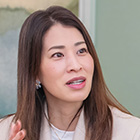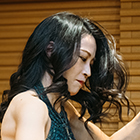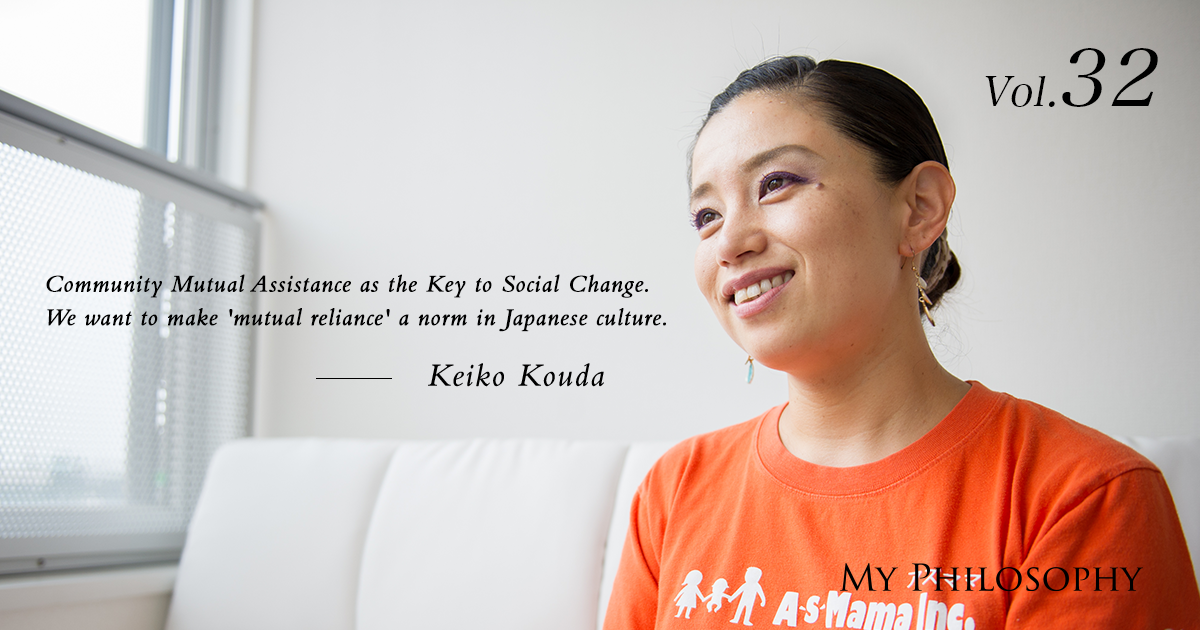
Keiko Kouda, the founder of AsMama, a service that has garnered attention on TV, newspapers, and magazines for its one-coin childcare sharing, discusses the business potential of sharing services. AsMama allows acquaintances to help each other with childcare, creating a supportive community network.
Profile
Vol.32 Keiko Kouda
CEO of AsMama Co., Ltd.
Keiko Kouda was born in Osaka Prefecture in 1975. After studying at Florida Atlantic University, she graduated from Kansai Gaidai University with a degree in English and American Studies. In 1998, following her university graduation, she joined the Japan Environment Corporation, a special corporation operated by the government, where she served as an executive secretary and was involved in international cooperation-related duties.
In 2000, she joined Nifty Corporation, overseeing marketing, public relations, and Investor Relations. In 2007, she joined ngi group Corporation, a venture incubation company, serving as the head of public relations and Investor Relations. She left the company in March 2009.
In November of the same year, she founded AsMama Inc., a community supporting childcare and parental assistance, and assumed the position of CEO. She is the author of "One Coin Childcare Share Changes Society!! (*One Coin no Kosodate Share ga Shakai wo Kaeru!!)" (published by Godo Forest Inc.).
*“One Coin” refers to a 500-yen coin in Japan.
*Titles and positions are as of the time of the interview (September 2014).
The Potential for Growth in Mutual Assistance
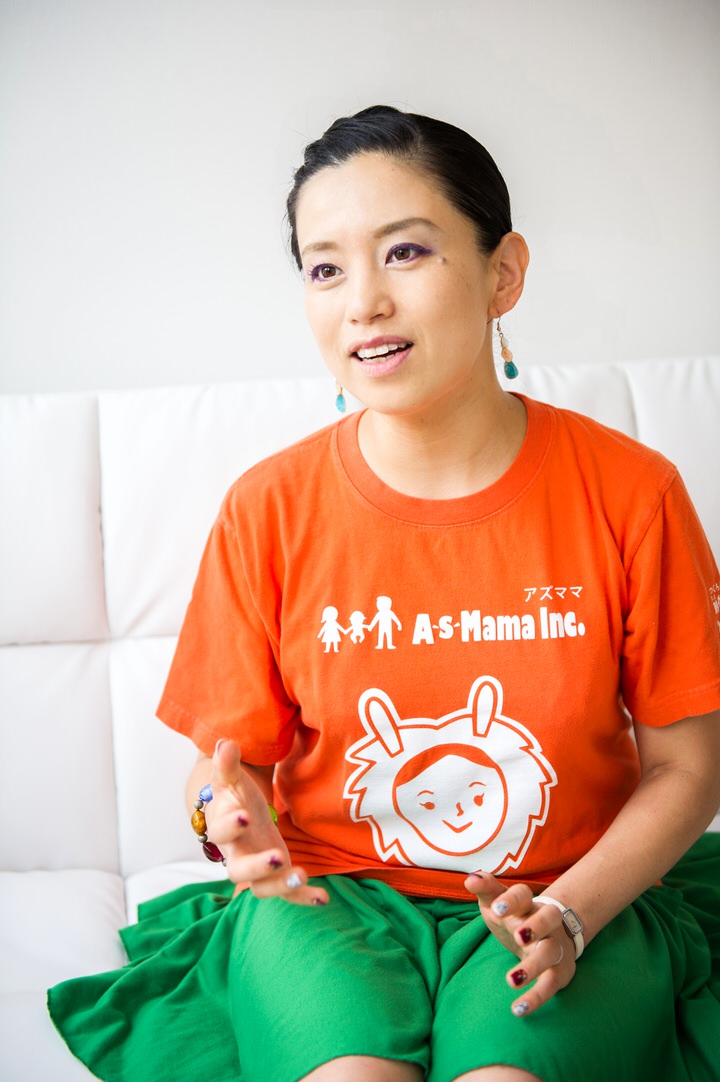
AsMama’s childcare sharing is often described as a service that helps mothers out of a sense of justice, but I believe it’s a business with the potential to drive social change. In everyday life, many problems can be solved with just a little help. We chose childcare sharing as the starting point, but our original aim has always been “community mutual assistance.” I grew up in an environment where if I came home from school and the door was locked, I could go to the neighbor’s house. This kind of neighborhood mutual assistance was once common, but now, excessive worries about causing injury or accidents have made it difficult for people to rely on each other.
Perhaps it’s a national characteristic, but Japanese people tend not to ask for help. However, if they see someone in trouble, they are naturally kind and willing to offer help. By adding a little ingenuity to this mutual assistance, society can change significantly.
Currently, we focus on childcare sharing, but in 10 or 20 years, the children we are helping now will no longer need support. Instead, they may begin to assist those who helped them, even if it’s not full-scale caregiving, but just simple help. This might include assistance with shopping, changing light bulbs, or accompanying someone to the hospital. Such mutual assistance will naturally arise. Rather than specifically expanding into the field of caregiving, our business will evolve in that direction. AsMama’s mission—to create a system where those who want to support and those who need support can meet and help each other ideally—will spread throughout society.
I believe that even if I didn’t have children of my own, once I realized that community mutual assistance could solve social issues and drive business growth, I would have jumped into this field and started this business without hesitation.
Experiencing Sibling Dynamics through Childcare Sharing
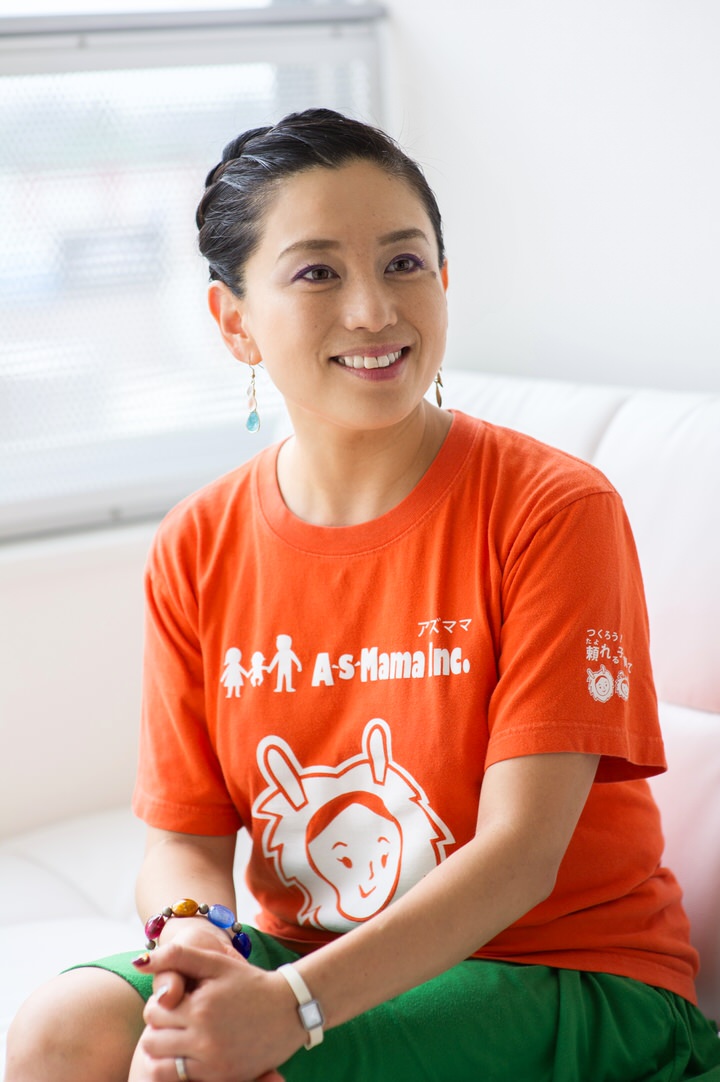
What I love most about childcare sharing is the opportunity for children to experience sibling dynamics. When children have siblings, they sometimes fight over toys and snacks. Through these interactions, they develop the ability to handle conflicts, share, and show mutual respect. My nine-year-old daughter, an only child, surprises me with her nurturing behavior when she visits homes with younger children. She takes care of babies, feeding them and comforting them, demonstrating a maternal instinct I didn’t know she had. When she visits homes with older children, she mimics their routines, such as studying or practicing the piano at set times, gaining various sibling experiences.
Our family has dinner after bathing, but she has learned that some families have different routines, like bathing after dinner. This teaches her about diversity and that different rules exist. I didn’t want to raise my daughter in a homogeneous environment, so she attends a Chinese International school that follows the education system of the Republic of China (Taiwan). There, she has friends from Taiwan, the USA, Canada, and other countries, embracing genuine diversity beyond what is typically discussed in the business world. There, she has friends from Taiwan, the USA, Canada, and other countries, embracing genuine diversity beyond what is typically discussed in the business world.
I want to provide my daughter with such environments and the essential skills for life. When she asks, “Mom, what should I do?” I always respond with, “Think! It’s your problem, so you need to figure it out.” This is not irresponsibility; it’s about fostering her ability to think independently and act proactively. If she acts solely on others’ instructions, she won’t take responsibility for her actions. Especially for children, if things don’t go well, they might say, “But I did what you told me to do!”
Not Just a Women’s Issue
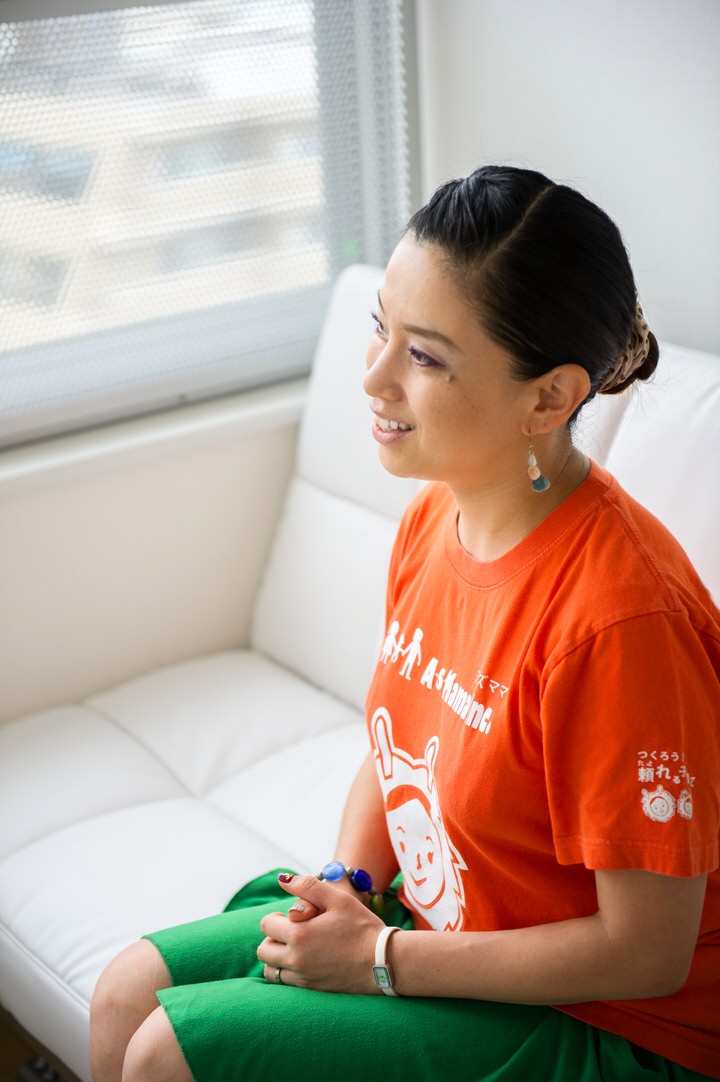
There is often talk about creating “AsPapa,” but for mothers to thrive and be active, they need the support of fathers. The primary reason our staff at AsMama have to quit their jobs is because of their husbands. Working inevitably means that a few of their household chores might be neglected, childcare responsibilities may increase, and there might be times when work extends into the night. If fathers do not accept these circumstances, it is challenging for mothers to maintain their motivation to work. If fathers confine mothers within the limits of their own expectations, women cannot thrive.
The issue of declining birth rates is serious, and it is evident that women need to work more than ever to increase the productive workforce. We cannot leave our children a society where women are forced to choose between their careers and childcare, potentially sacrificing the careers they have built. We also do not want to create a social environment that makes the current generation of children dread living in Japan when they grow up. Within companies, decision-making positions are overwhelmingly held by men. It is crucial for these men to seriously consider what challenges exist and what support is needed to create a society where both childcare and self-fulfillment are achievable.
A Global Infrastructure
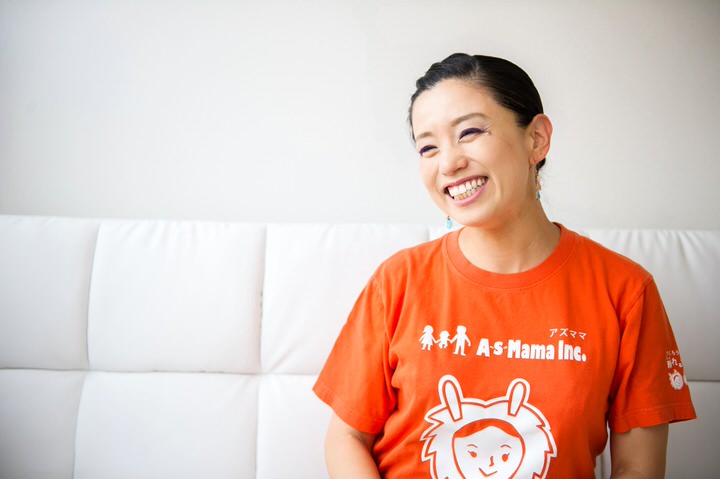
In the future, I envision this mutual assistance becoming an infrastructure more essential than electricity and water. I want it to be a universal tool that people around the world can rely on in times of need. Ideally, within five years, I hope to change society’s mindset to: “Relying on others for childcare benefits both the children and the community. Therefore, let’s rely on each other more for childcare. Even if you’re not particularly struggling, use it once a week for diversity and social experiences, much like you would with extracurricular activities.” This level of societal change would be challenging to achieve within five years, as it pertains to cultural transformation.
For now, my goal is for this to become as reliable as an ambulance. Just like when you dial 119 after a traffic accident and know without a doubt that an ambulance will come, I want people to believe that if they signal for help, someone they know will definitely come. I want children to believe that if their mother collapses, someone familiar will rush to their aid.
This system, where you can see the face of the person you’re asking for help, feel secure, and easily request assistance without hesitation, should resonate across all countries and generations. I hope that even after my time, the next generation will carry on this vision, spreading it worldwide as a universal infrastructure.
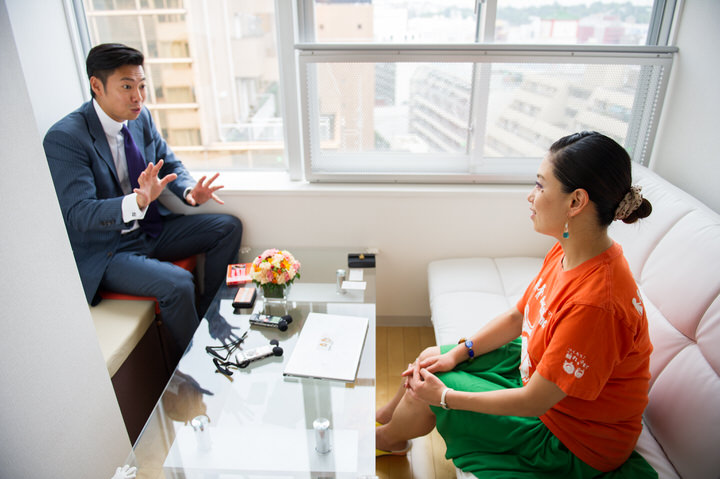
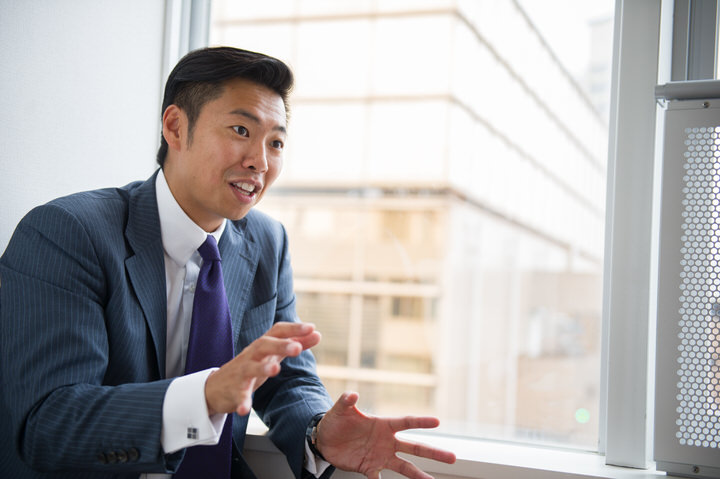
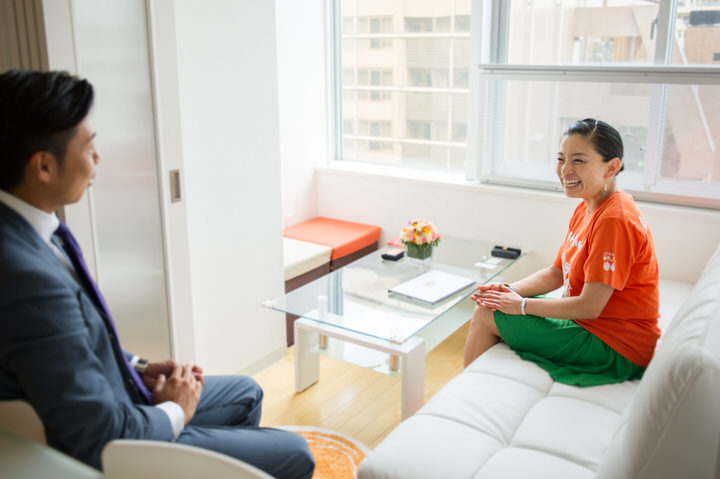
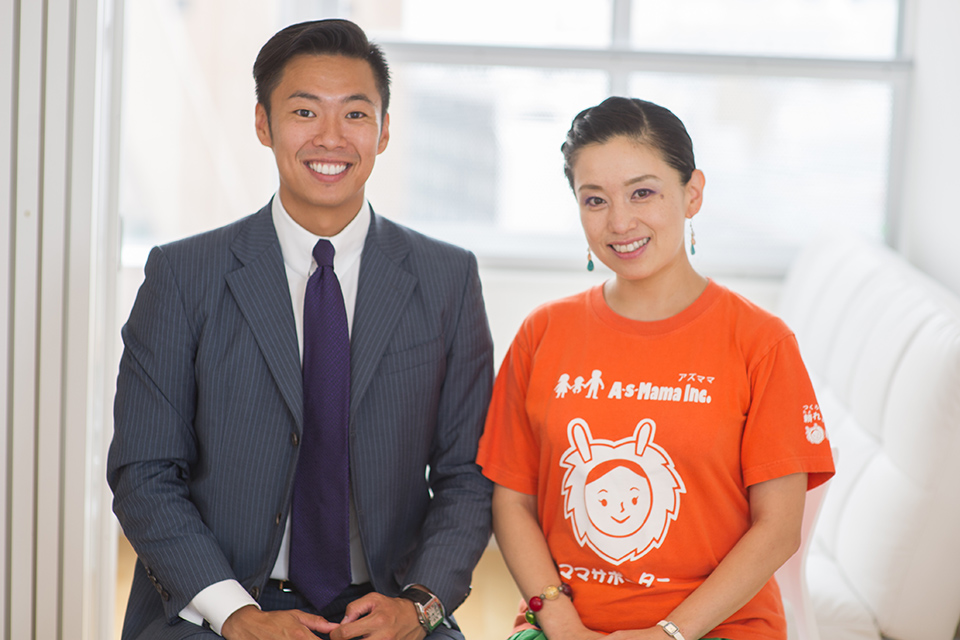

This session felt less like an interview and more like a lively discussion with Sugiyama-san about the infinite possibilities and making the world a better place. It was incredibly enjoyable!
What I was certain of during our conversation was that “we can change our society ourselves!” Energized by Sugiyama-san’s passionate words, “Make it happen!(Those with the will can achieve it!),” I thought of theAsMama AsMama staff across the country. Despite the daunting task of promoting mutual assistance, they continue to raise their voices and work tirelessly to create a child-friendly community where children can enjoy their time. They understand that it’s no longer an era to rely on others; each person must speak up and take action. Now is the time for significant societal change.
Although still in its early stages, I firmly believe in the potential of this mission and the dedicated team behind it. From here on out, we are determined to make it happen!
Keiko Kouda. CEO, AsMama Inc.

Reading Keiko Kouda’s book, “One Coin Childcare Share Changes Society,” conveys the powerful impact of AsMama’s activities. With 20,000 registered users, it’s evident how essential this service is. Meeting Kouda-san in person, I found her to be someone with the energy and warmth of the sun, always focusing on “how to make it happen” rather than reasons why it can’t be done. I deeply resonated with her proactive attitude.
This interview not only covered AsMama’s past activities but also provided valuable insights into the current challenges of childcare in Japan.
For families with young children, life revolves around the kids, bringing many worries and challenges. AsMama combines IT, mutual assistance, and community elements to create new services, which I eagerly anticipate.
For those who are not yet familiar with AsMama’s services, please visit: AsMama https://asmama.jp/en/
September 2014,at AsMama Inc.





